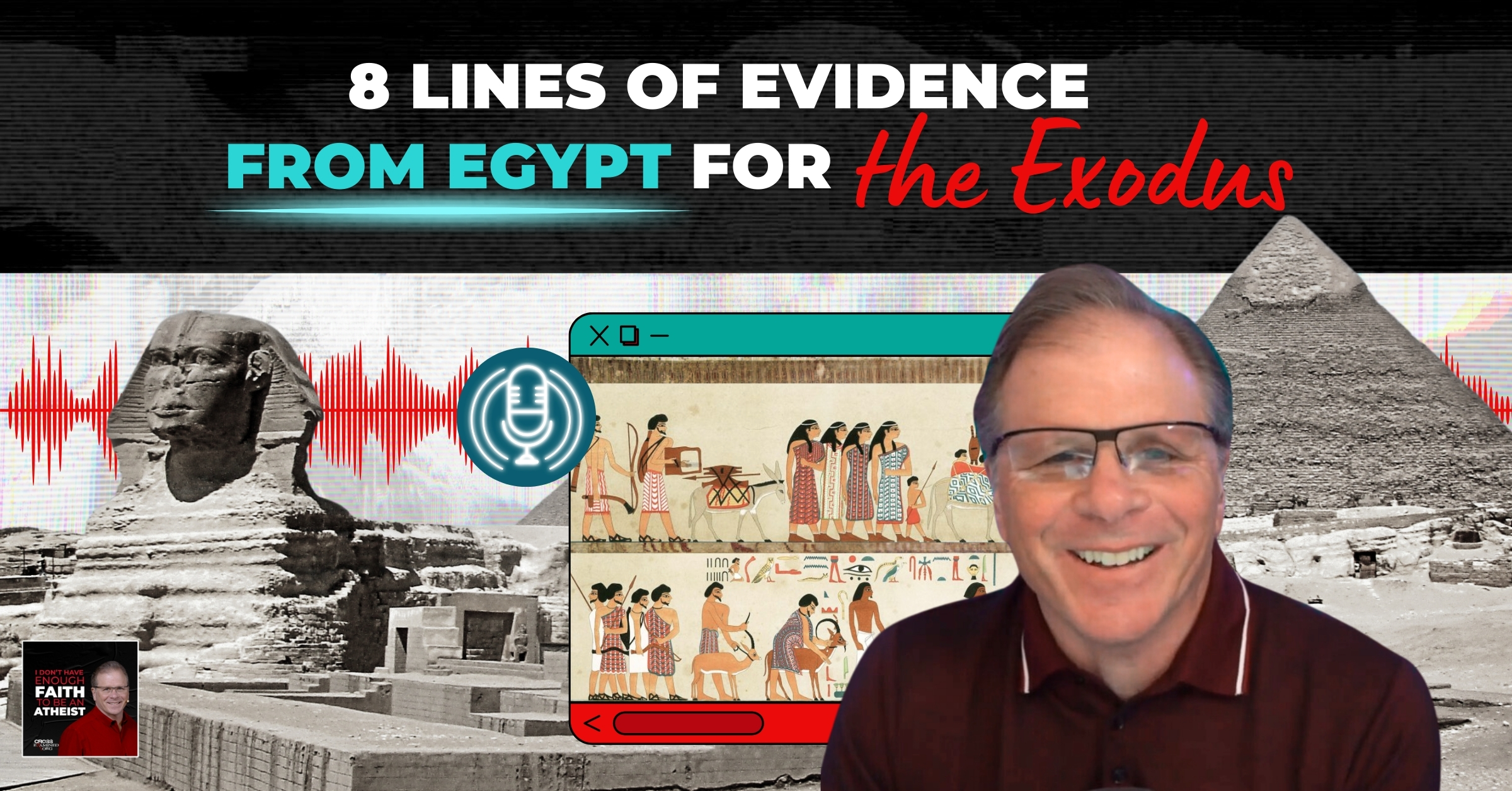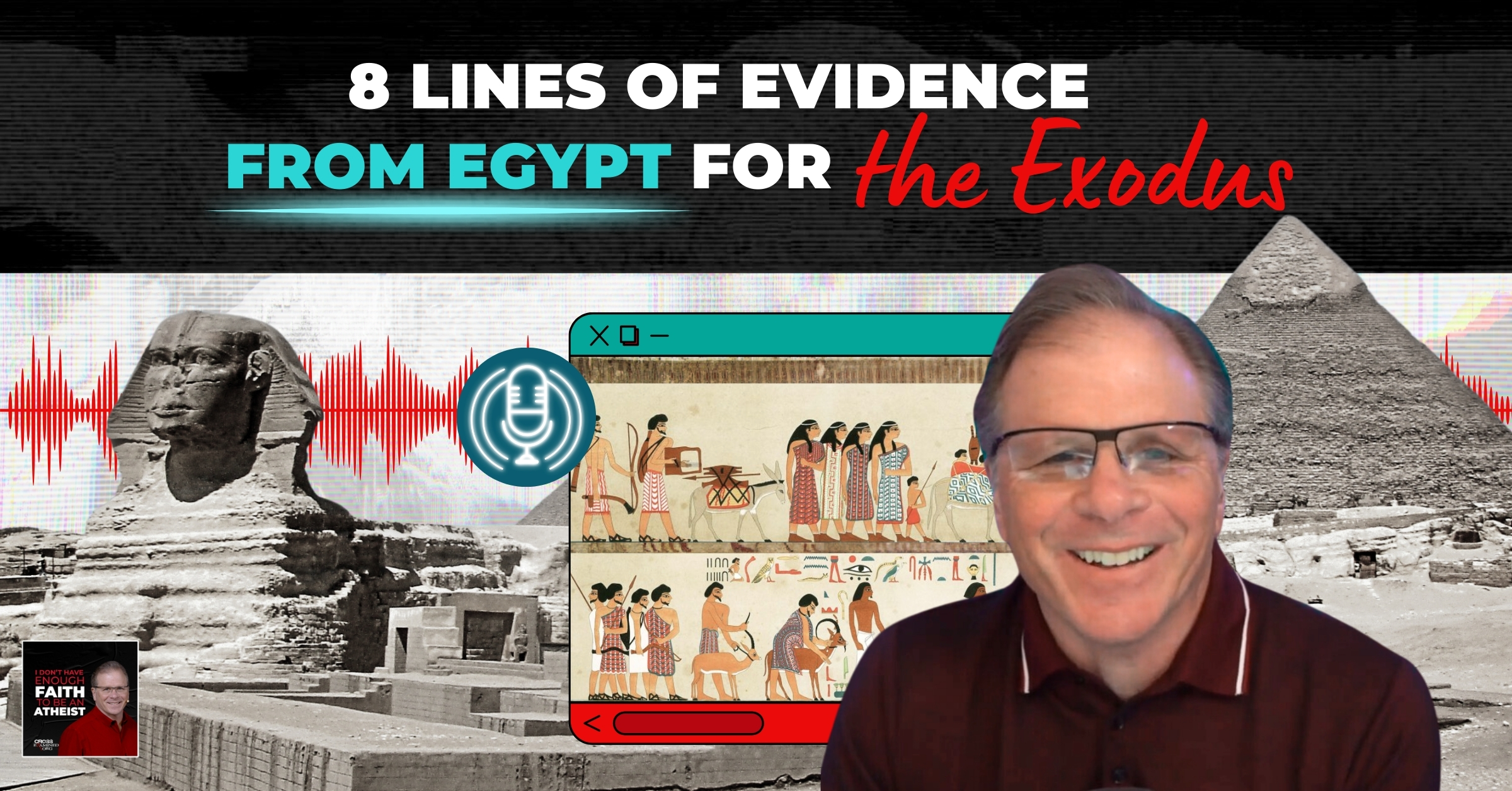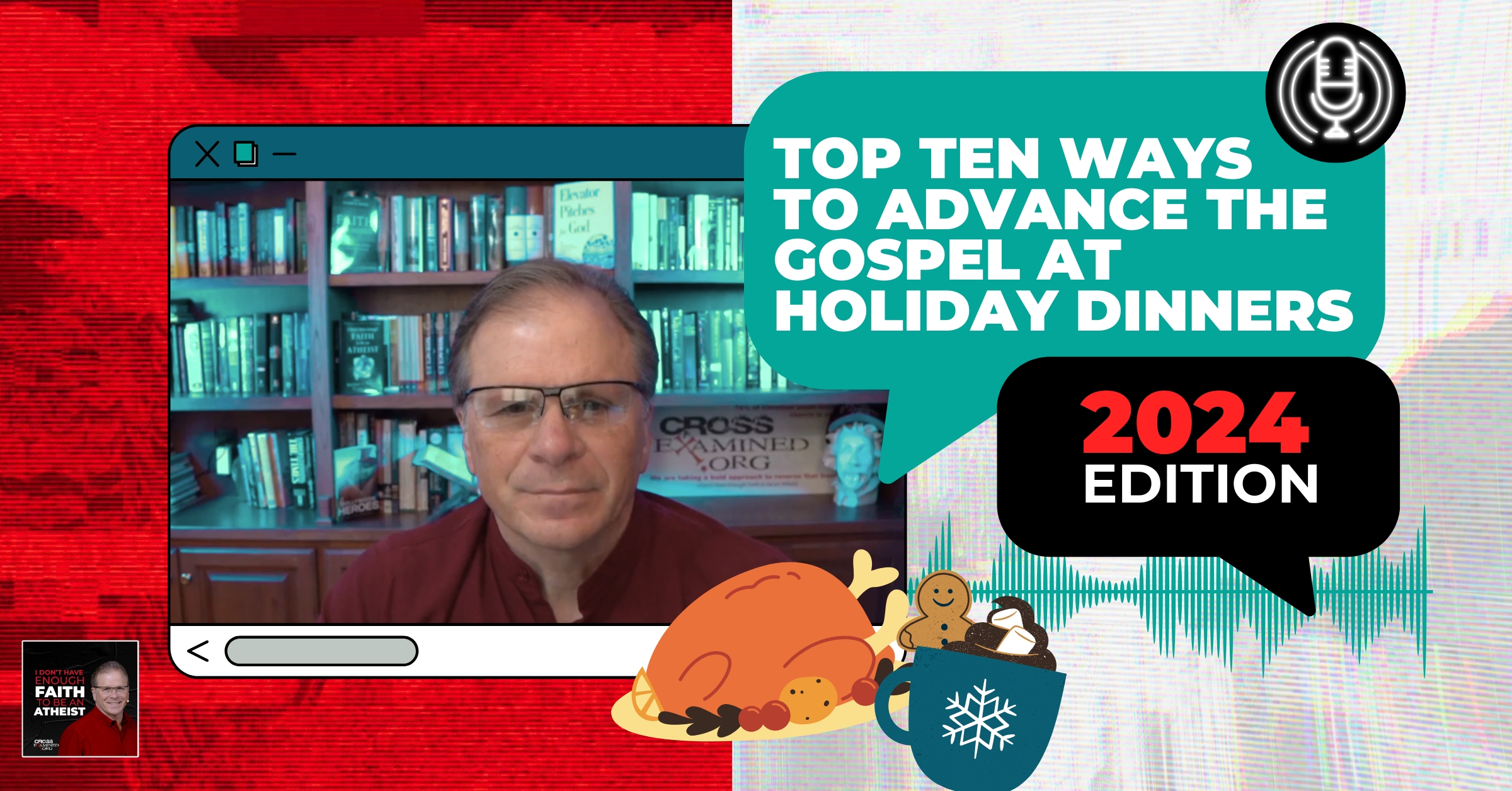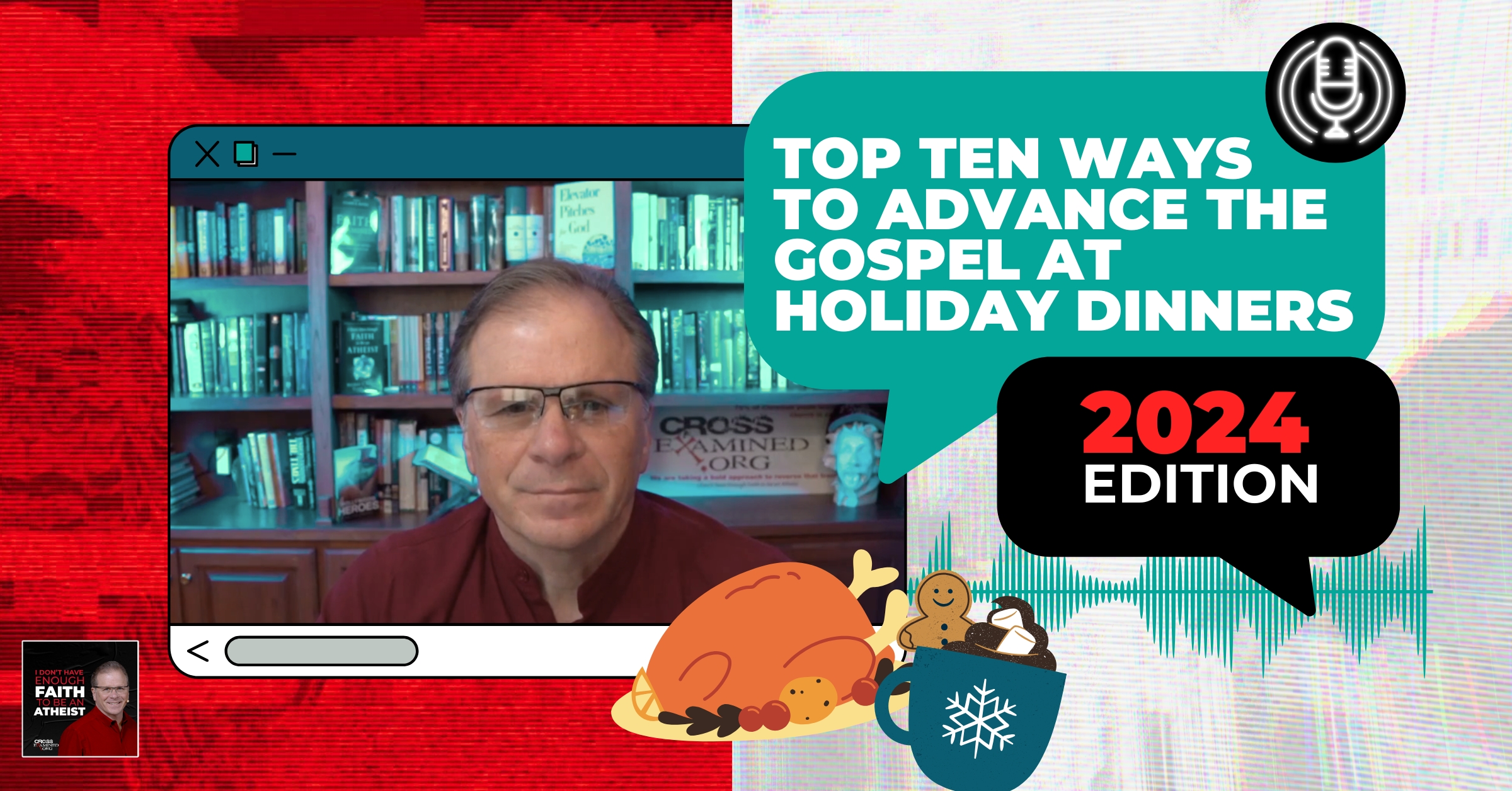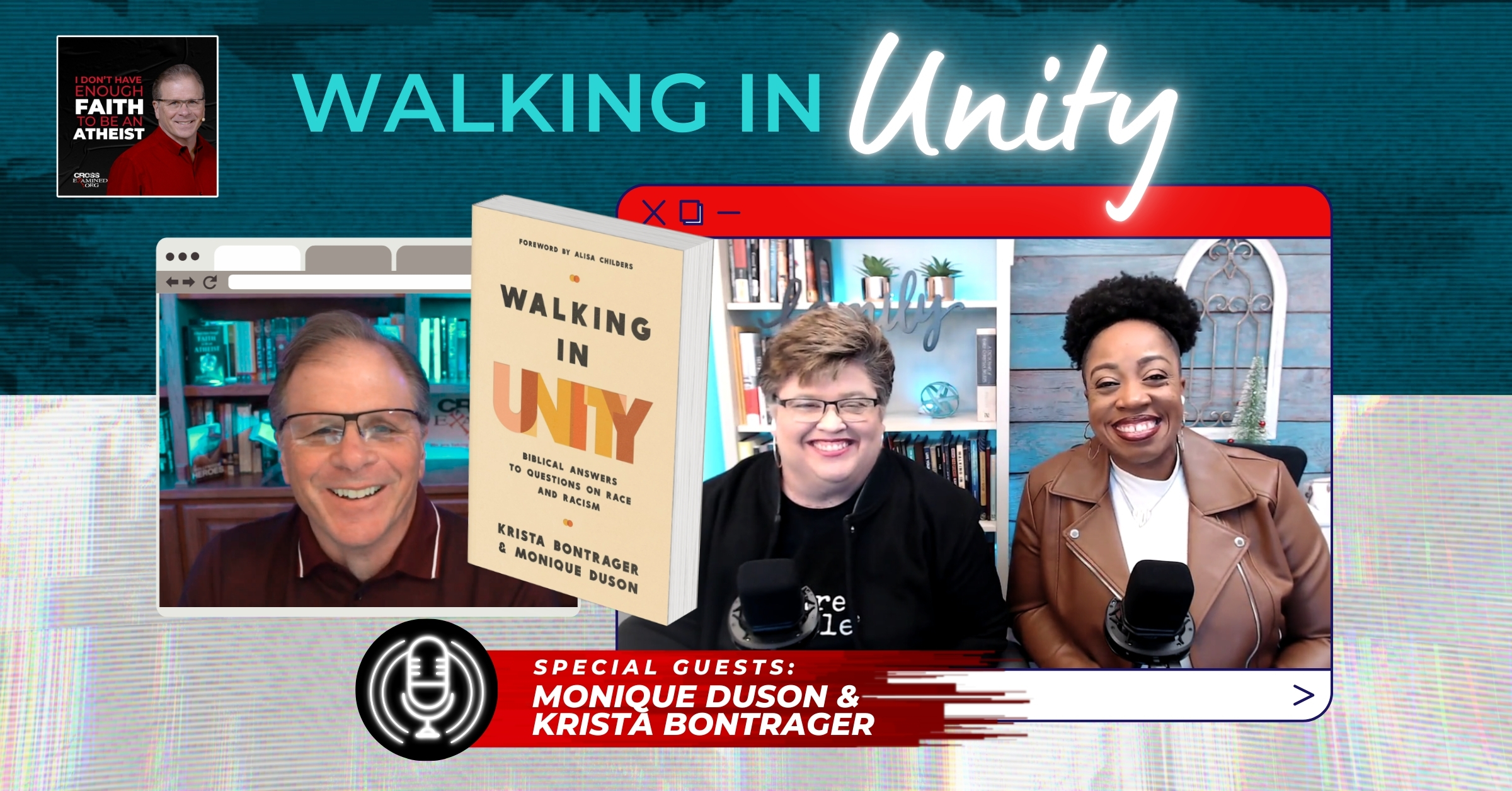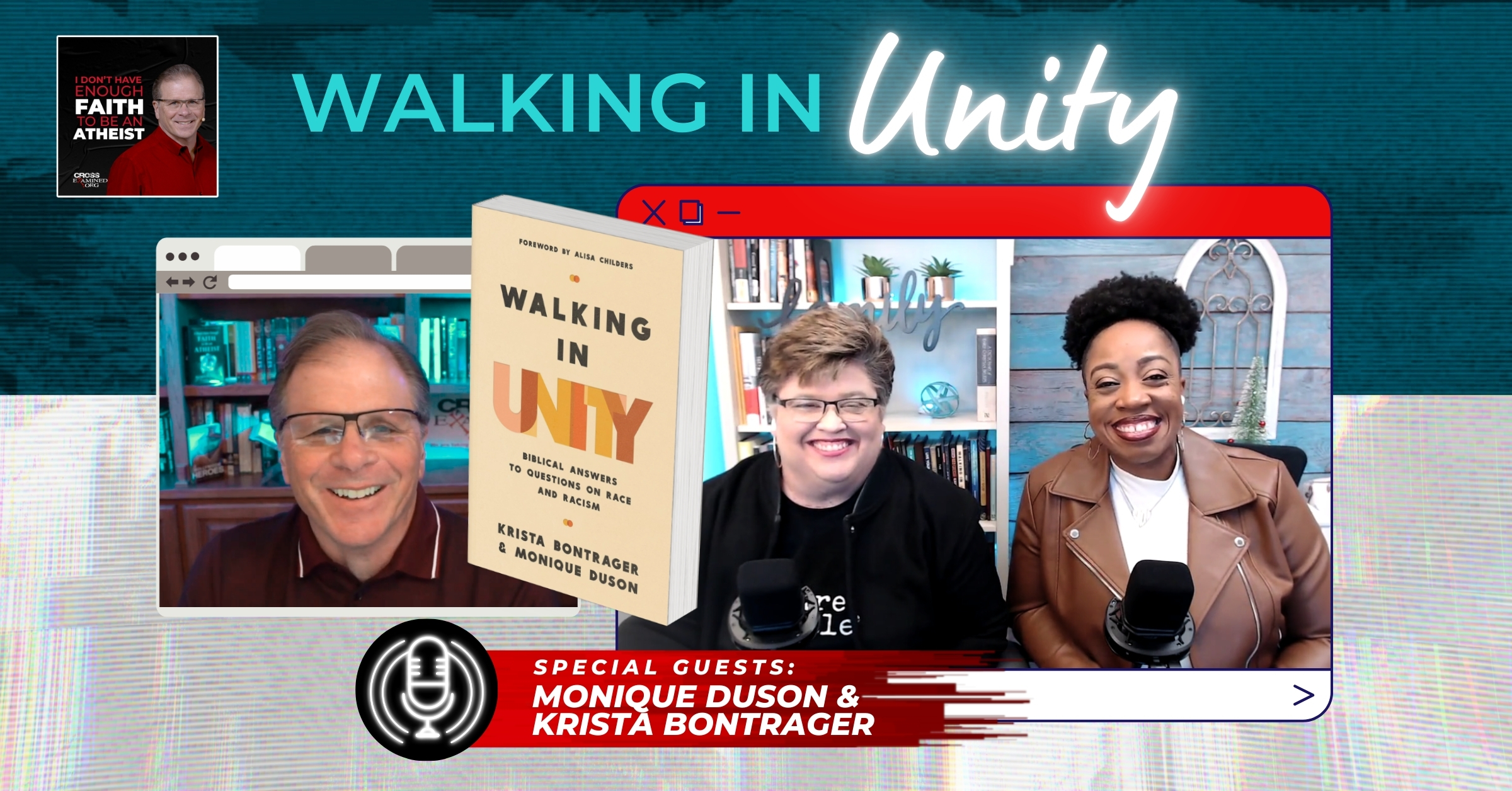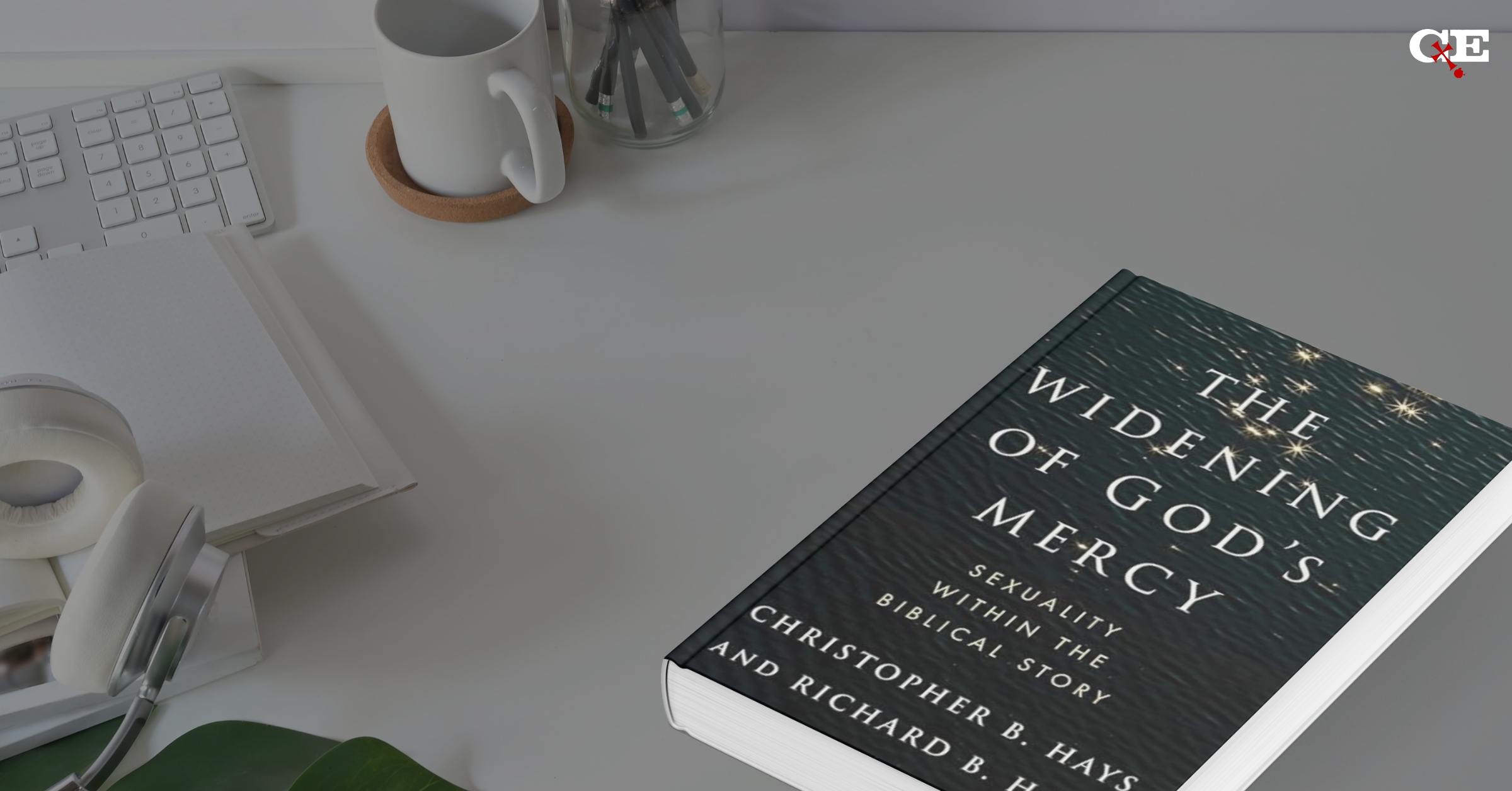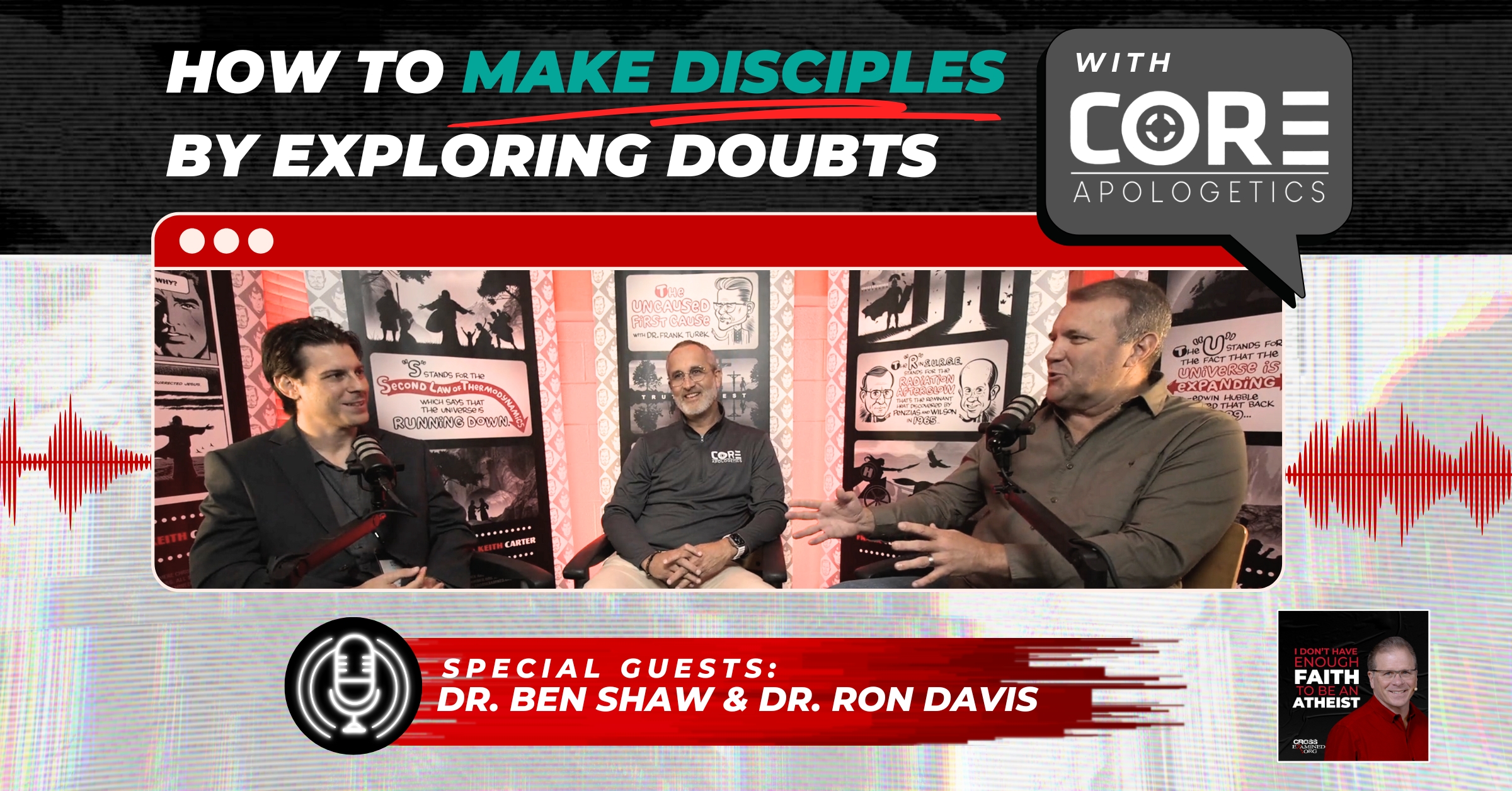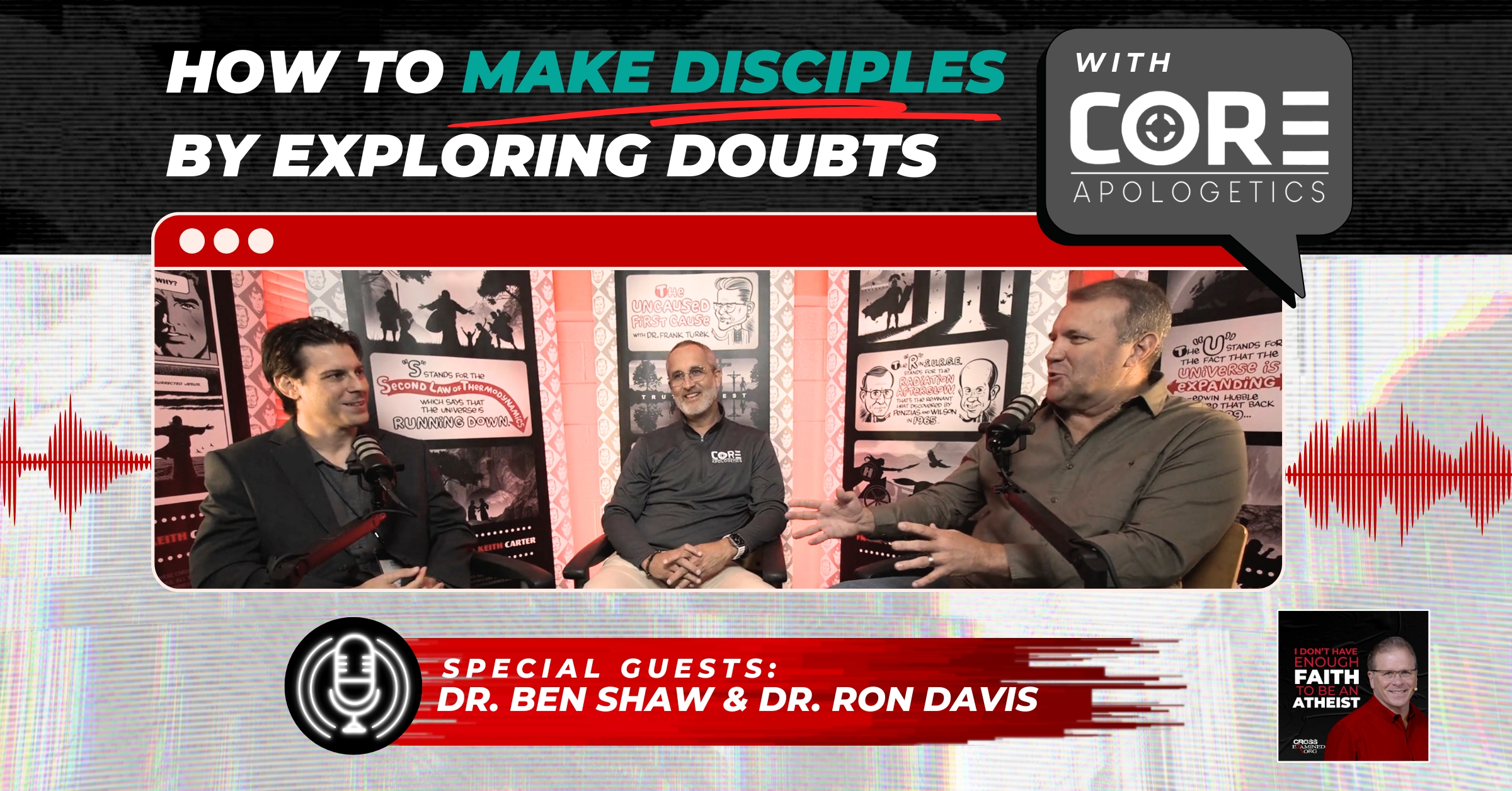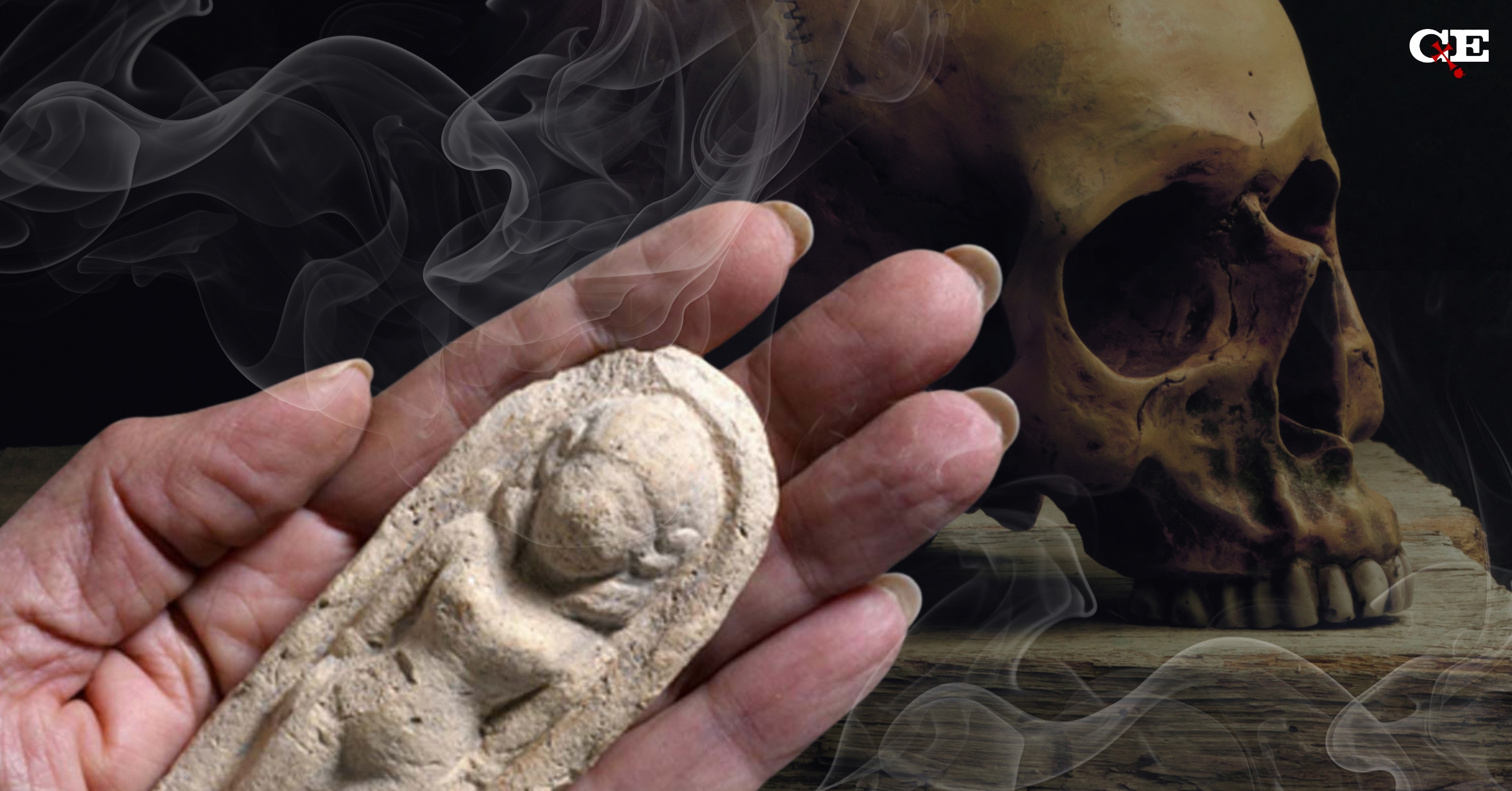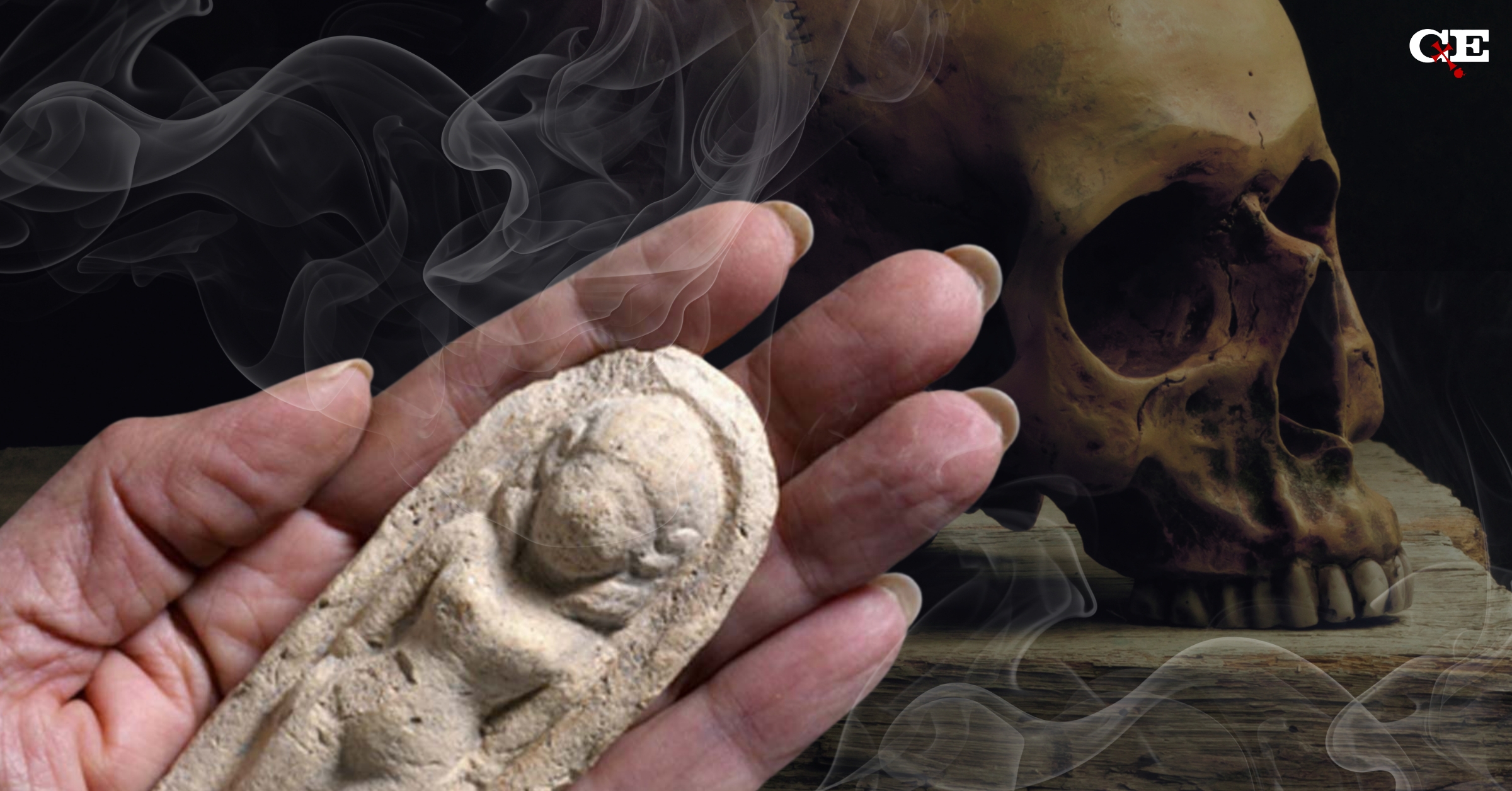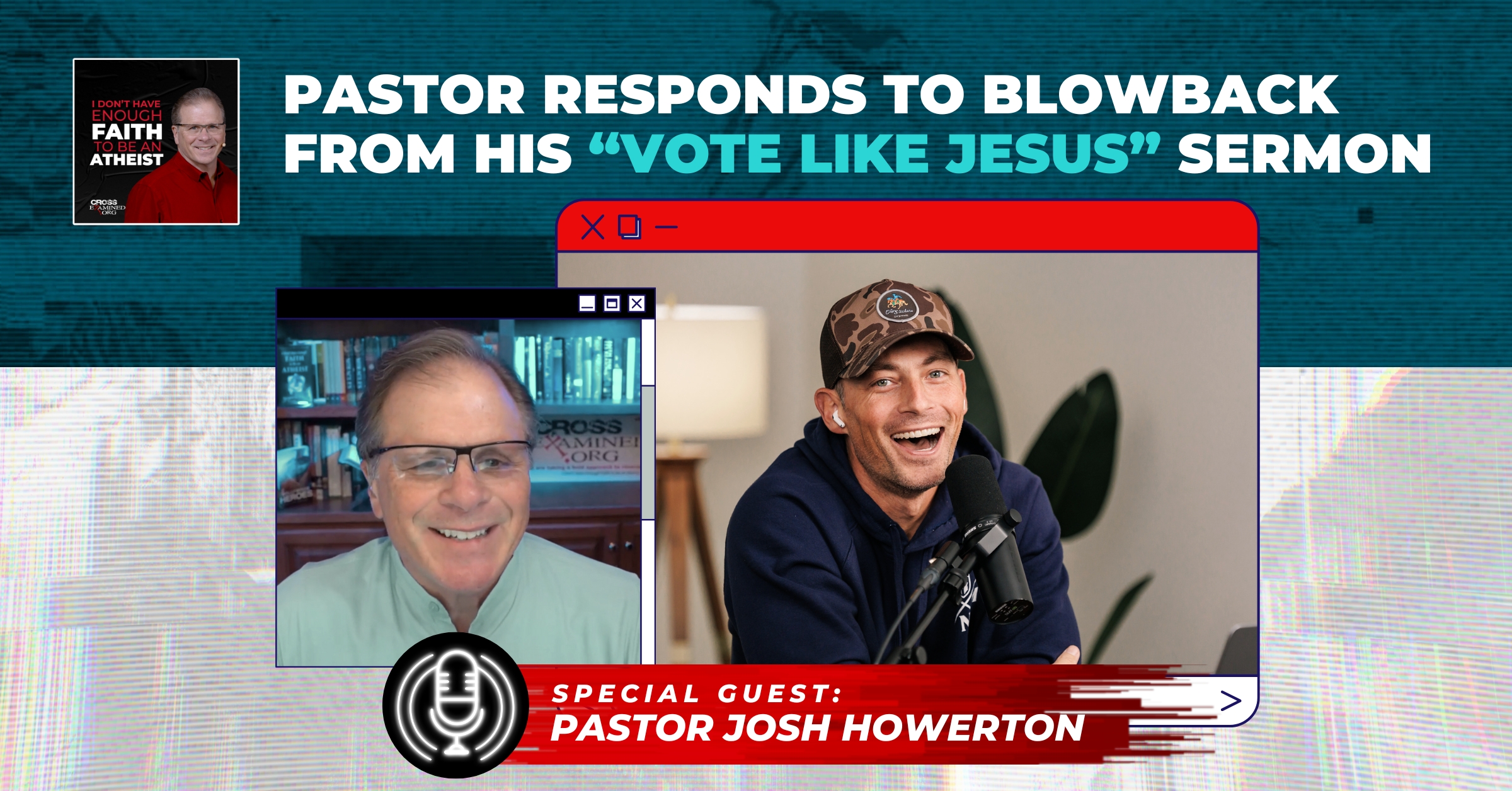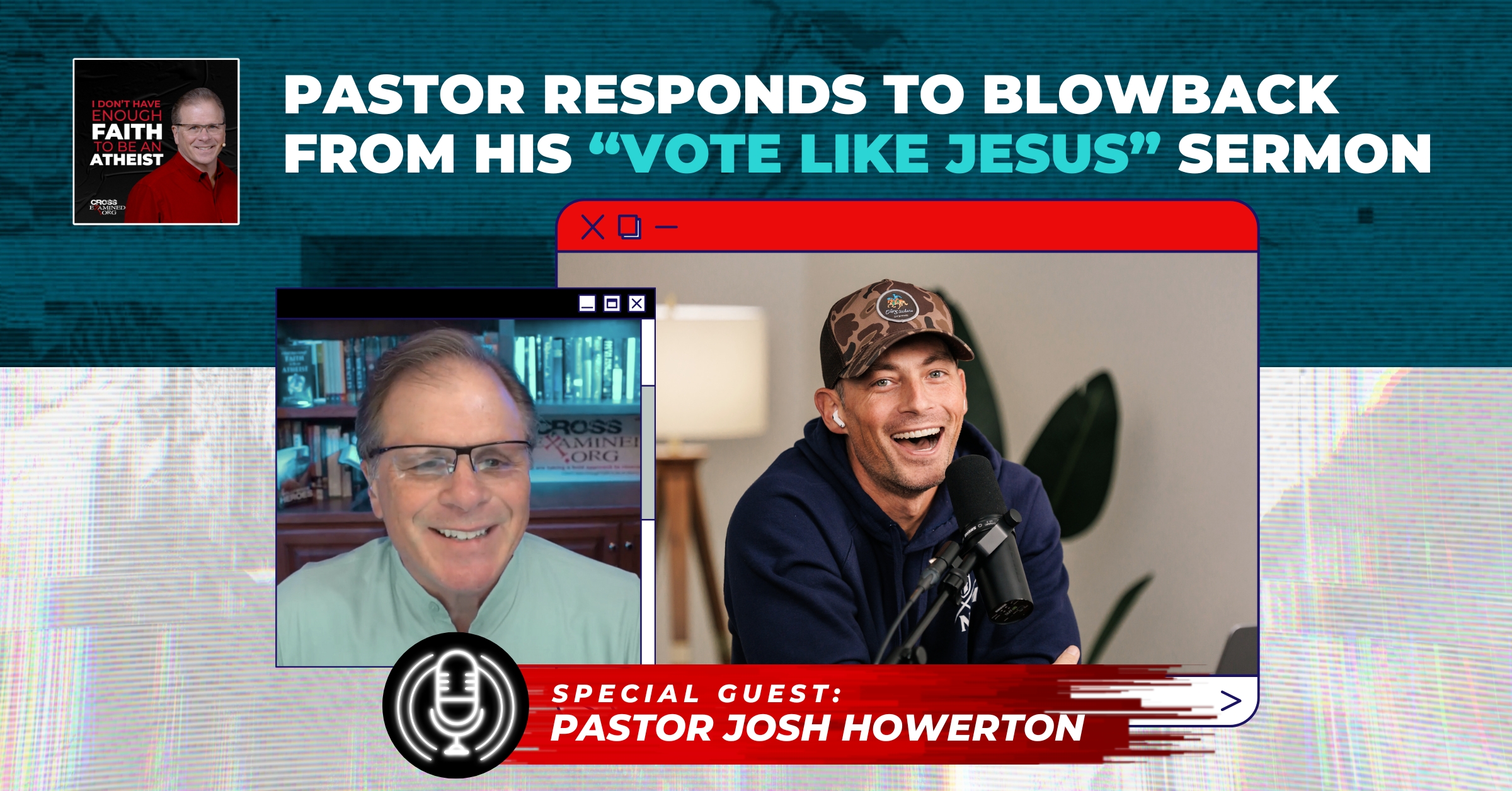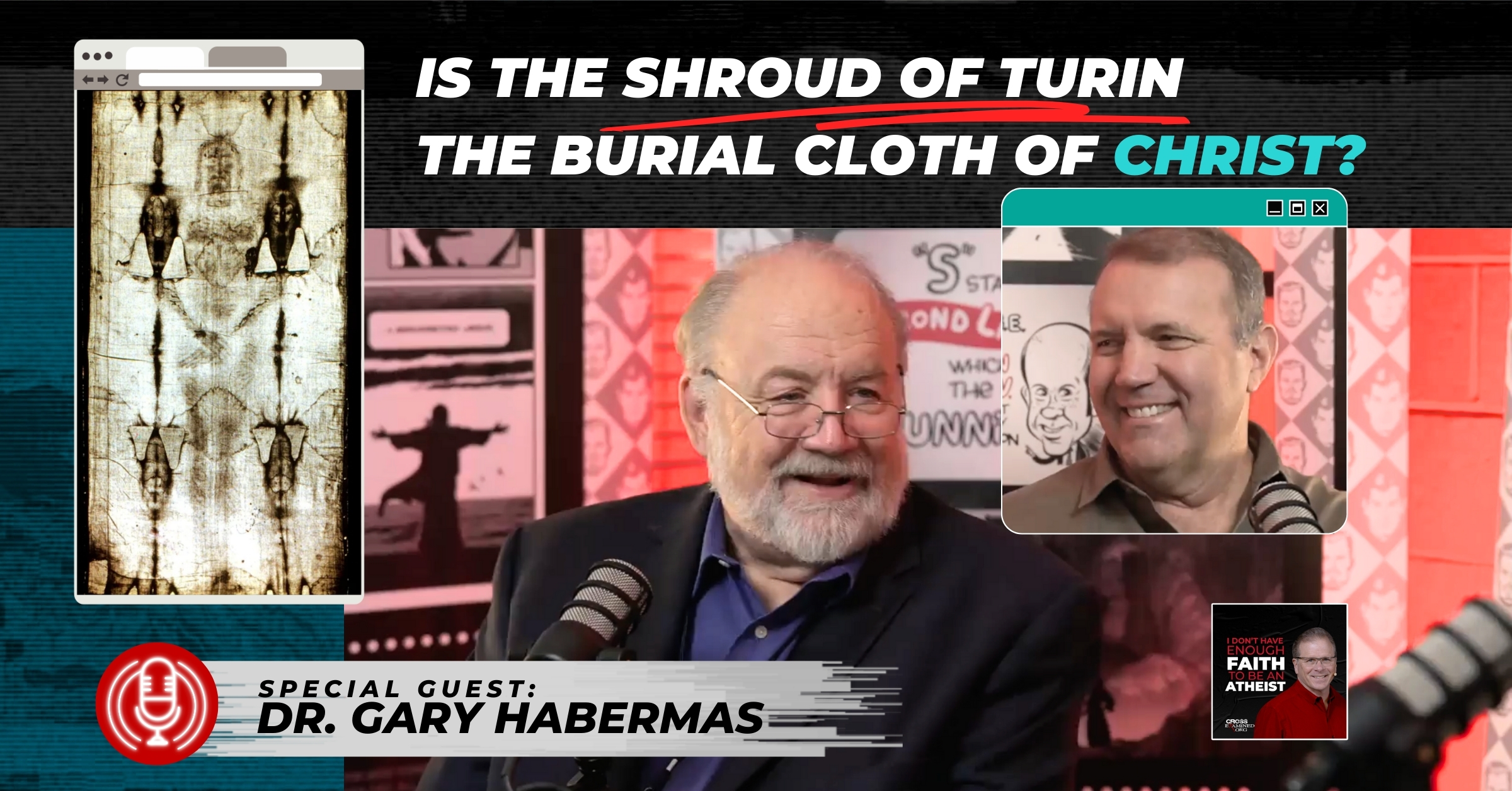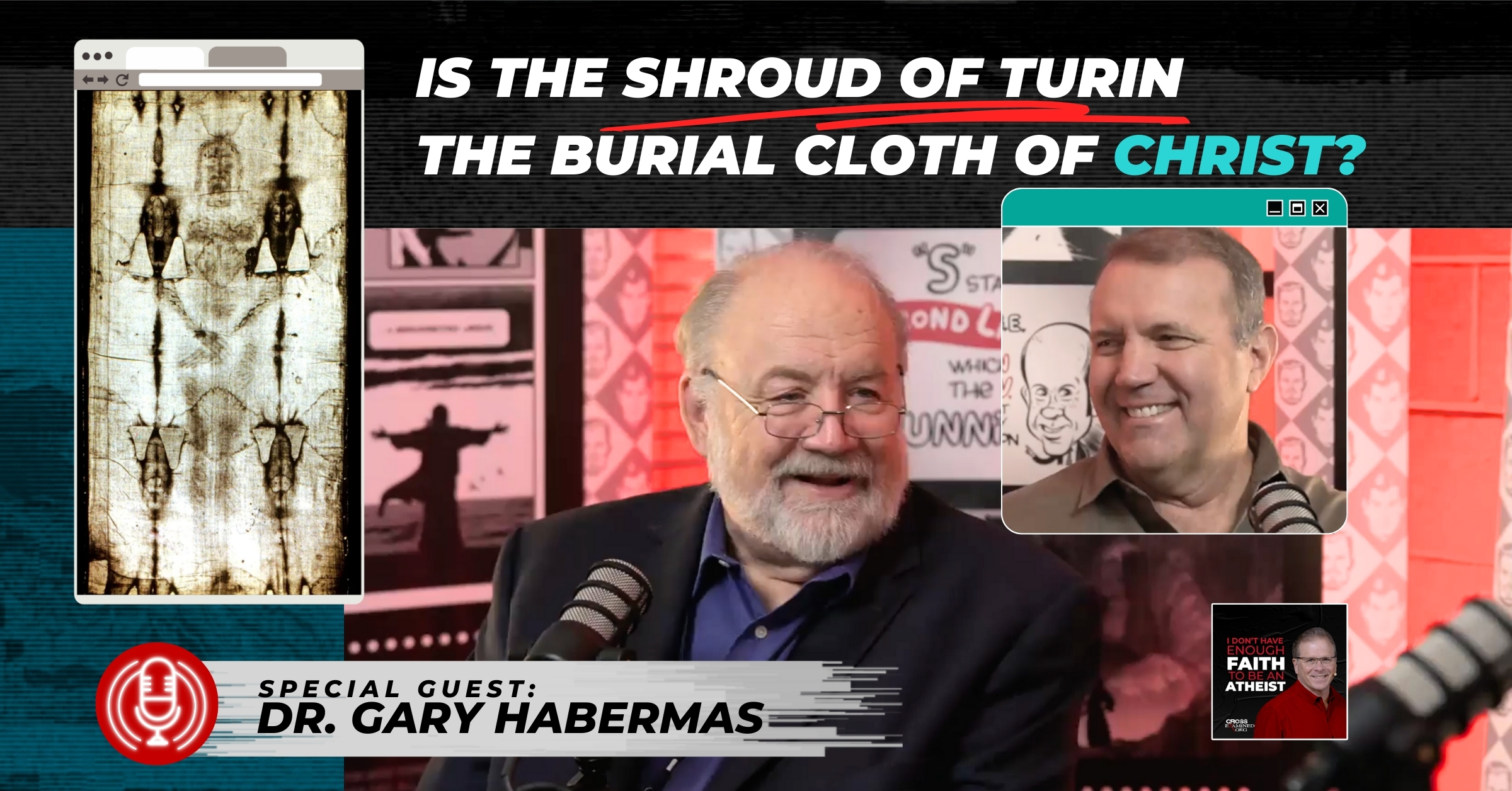In the mid-1990’s a Theology professor at Duke Divinity School, named Richard Hayes, wrote a book called The Moral Vision of the New Testament: Community, Cross, New Creation, A Contemporary Introduction to New Testament Ethics. It made waves in the Evangelical world because it was the first time a relatively liberal theological scholar took a definitive stance on the biblical sexual ethic. For decades conservative Christian scholars and pastors have cited Hays’s work in this book as evidence that scripture speaks clearly on issues concerning human sexuality and morality.
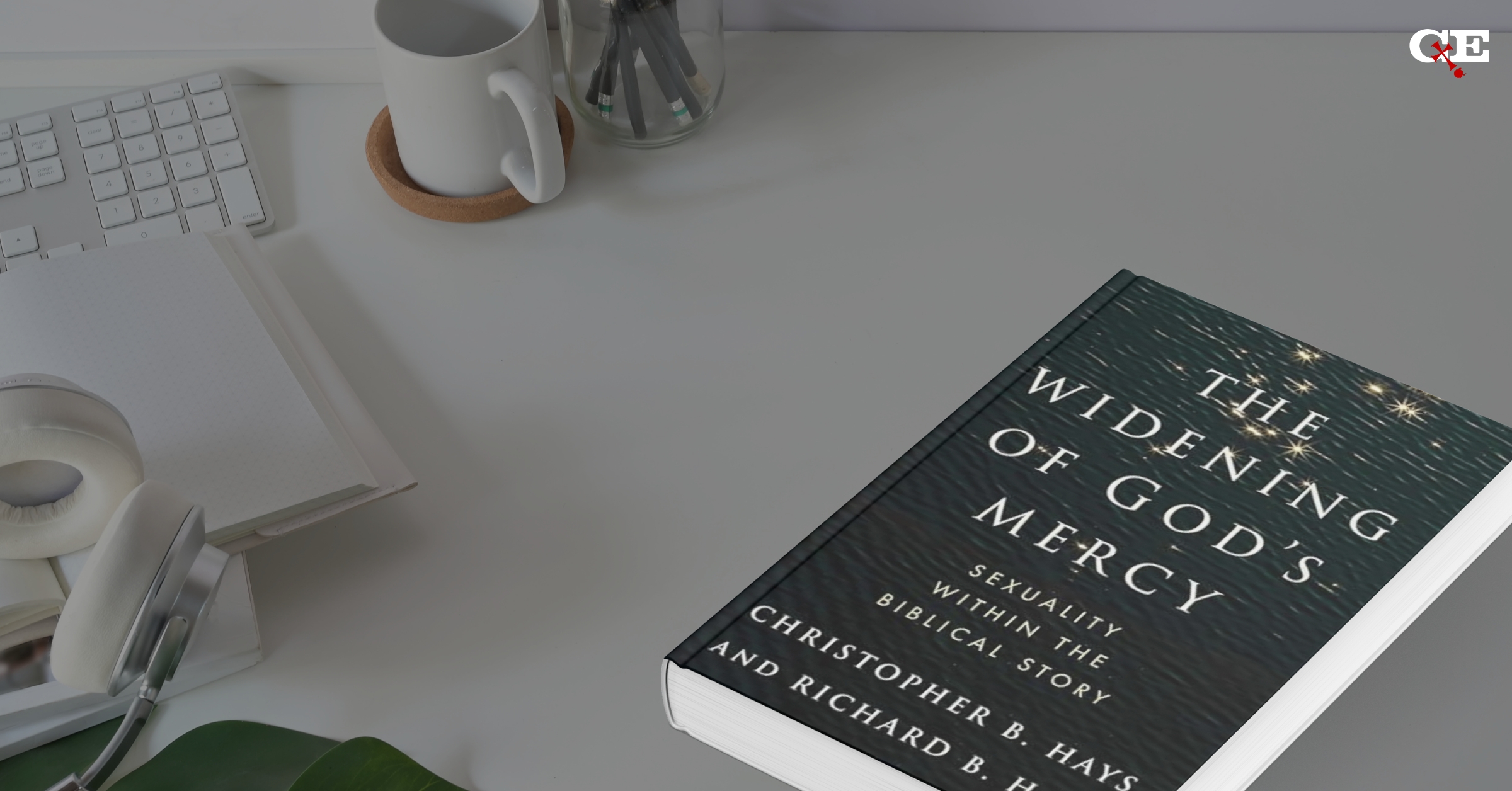
There were other, more conservative, names that had come to the same conclusions as Hays prior to and after his book was published. However, the very fact that someone of his pedigree, hailing from such a scholarly institution as Duke University, so unequivocally stood on the orthodox understanding of scriptures concerning sexuality was seen as a sort of ace in the hole against the arguments of affirmation theology.
In his 1996 book Hays said this:
“Thus, in view of the considerable uncertainty surrounding the scientific and experiential evidence, in view of our culture’s present swirling confusion about gender roles, in view of our propensity for self-deception, I think it prudent and necessary to let the univocal testimony of Scripture and the Christian tradition order the life of the church on this painfully controversial matter. We must affirm that the New Testament tells us the truth about ourselves as sinners and as God’s sexual creatures: marriage between man and woman is the normative form for human sexual fulfillment, and homosexuality is one among many tragic signs that we are a broken people, alienated from God’s loving purpose.” (The Moral Vision, pgs. 399-400)
But Wait, There’s More
Recently, however, Richard and his son Christopher, a professor at Fuller Seminary, published a book called The Widening of God’s Mercy: Sexuality within the biblical story. In it, Richard and Christopher lay out an argument for repudiating Richard’s previous work and leaning into affirmation theology. This seismic shift was heralded as a possible inflection point in the Evangelical Church’s defense of the biblical sexual ethic.
The book’s premise relies on understanding that God changes his mind throughout the history of scripture:
“Although these stories (OT stories, particularly Moses) are told as if God is ‘learning on the job,’ the portrait they create is consistent with a recurring image of God throughout the Bible. Even where judgment seems to narrow the scope of blessing, there are signs of the wideness of God’s mercy. God’s plan for the world is broader than some think.” (pg. 48)
God’s changing of mind and widening of his circle of inclusion is used throughout the book to support the claim that the next step in this widening work is through the full inclusion of LGBTQ+ people and their lifestyles:
“Those who do not conform to traditional expectations for sexual orientation should be the next to be explicitly included, as an extension of this ancient and traditional process.” (pg. 4)
In this book review, I will look at what it seems Richard and Cristopher intended to accomplish, the arguments in the book, and, as always, what the book does well and what it does poorly.
Purpose of the Book
Some might believe that the purpose of this book is to change conservative minds, but this is not the case. Richard and his son seek not to change staunch conservatives but to give hope to those in the middle or to the left on the issue of sexual identity and Christianity. The book is also meant to serve as a salve on the wounds of those who have felt alienated by the church’s traditional position on human sexuality. Thus, this is not an academic book, unlike Richard’s first work in 1996, but is, instead, a book focused on empathy, shifting the narrative in the conversation, and extending an olive branch to people either firmly in the affirmation camp or those that are on the fence.
At the outset, Richard and Christopher do not hide the ball as far as that is concerned:
“The reader will find few footnotes” (pg. 4).
“This book also starts from the recognition of the harm that modern conservative Christianity has done by fighting battles that God doesn’t call us to fight” (pg. 5).
“… after I suggested we write this book, he asked me, “who is the intended audience?” And I said, “Maddie.” That’s my daughter, whom we have raised to appreciate the strength that comes from diversity and who can see very clearly that the future will have no patience with debates over human rights for those whose sexual orientation does not conform to ‘traditional’ standards” (pg. 16).
Clearly, this book is not intended to convince me. And it did not, as that was not its aim.
What this book does well
Care for the LGBTQ+ Community to Come to Jesus
The book strikes a tone of love and care for people in the LGBTQ+ community. It shows a care for their eternal souls and is seemingly meant to serve as an apologetic for them to come to faith in Jesus Christ even if they have been hurt by the theology and/or actions of the Church in the past.
“…but the book is also for those who are already convinced that LGBTQ people are just as good as straight people but who are unsure about God and Christianity… To them -perhaps to you- we say: You’re not crazy to think you and yours are created equal and loved equally by God” (pg. 16).
I appreciate the heart of two individuals who desire to see all come to faith in Jesus Christ and seek to remove any unnecessary obstacles from their path. The question becomes though, what is necessary and unnecessary for the gospel? I have often said that homosexuality and LGBTQ lifestyles are the one sin the church has often told people they need to solve prior to coming to the cross of Christ. This is wrong and harmful. In that much, I agree, but going the extra step to affirm certain lifestyles because otherwise it would cost too much for people to follow Jesus, that is a bridge too far.
Jesus himself said we need to count the cost (Luke 14:28-33), so it is not readily apparent that the obstacles of a biblical sexual ethic should be glossed over. That being said, I believe Christopher and Richard’s heart for people not of the faith is on full display throughout the book. They have clearly been impacted by the stories of pain told to them by people in those communities and I resonate with that.
“A gay acquaintance tells the story of when he was first coming to grips with his sexuality as a grade-schooler, and his Sunday school teacher gave the class a coloring sheet with a little messy kid on it and the words, ‘God don’t make no junk.’ Most of the sheets probably wound up in the trash fairly soon, but he hid his under his bed. He would take it out occasionally, when we needed a reminder that he had been created as he was, and he’s never forgotten it. No one forgets when the church manifests the love and joy that God feels toward creation; nor do they forget when it doesn’t” (pg. 36).
“My own experience of participating in a church where gay and lesbian members were a vital part of the congregation’s life and ministry has caused me to stop and reconsider what I wrote before” (pg. 10).
“The more we have listened to friends, to our fellow Christians, and to respected voices in the culture more broadly, the more we have been compelled to recognize a tidal wave of evidence that same-sex attraction and partnering is, for some people, hardwired into their identity. And, at the same time, we recognize that the gifts and graces of the Holy Spirit are abundantly present among our LGBTQ friends. That being so, we find ourselves compelled to say, along with Peter, “Who are we that we can block God” (pg. 213-14).
These personal experiences (Christopher shares, at length, multiple experiences of students at Fuller early in the book) seem to be the impetus for such a change of mind. Experience is of seminal importance throughout the book, and reading scripture through the lens of experience seems to be the preferred method. The desire is admirable, the empathy understandable, but the theology and methodology is flawed.
Unity of the Church
Another thing that seems to bother both Christopher and Richard is the division over this issue. In multiple spaces throughout the book, both authors indicate a desire to move beyond these debates and to the more important matters of the law of Christ. They see the fracturing within the church, rightly, as a bad thing. The divisiveness over such issues seems paltry and unnecessary to them.
Ultimately, it seems one of the goals of their book is to encourage people to let go of division and arguments so we can move forward much like the early church did with food sacrificed to idols.
“The repetitive arguments about the same set of verses, and the meaning of specific words, have reached an impasse; they are superficial and boring” (pg. 2).
They find exegetical arguments counterproductive to the unity of the church on these issues and thus, they do not make many, if any, throughout the book:
“We believe that this debate should no longer focus on the endlessly repeated exegetical arguments about half a dozen isolated texts that forbid or disapprove of same-sex relations. (The regularly cited texts are Gen 19:1-9, Lev 18:22, 20:13, 1 Cor. 6:9-11, 1 Tim. 1:10, and Rom 1:18-32). In this book we have not revisited them. It is relatively clear that these texts view homosexual sex negatively, even if they do not envisage covenanted same-sex partnerships as we know them today. But drawing conclusions based only on these passages would be like basing a biblical theology of slavery on Exod. 21:2 (which assumes one can buy a slave) and 1 Pet 2:18 (which tells slaves to be subject to their masters), or a theology of immigration on Ezek 44:9’s exclusion of foreigners from the sanctuary” (pg. 206-207).
“As a practical matter, it is difficult to see how strong differences over same-sex marriages could be maintained within an individual congregation, or even in some cases within an individual denomination. But it is not impossible to imagine that different Christian congregations might hold different norms and practices on this question while still acknowledging one another as members of the one body of Christ – just as Catholic and Protestant churches already do with respect to their different standards on clerical celibacy and women’s ordination” (pg. 216).
While there are certainly issues with these assertions, and certainly I do not agree that exegetical arguments concerning what is and is not a sin are pedantic in any way, I can appreciate the heart for unity behind the words. But unity in sin should not be the goal. This leads us to what this book does poorly.
What this Book does poorly
The entire argument is incredibly flawed
The most glaring issue with this book is that the argument is blatantly flawed. In fact, in arguing for the widening of God’s mercy to be extended to a certain group both Hays men fail in properly defining the word mercy and why mercy is needed in the first place. Not only that, but both men indicate that the passages of scripture outlawing such sexual activity do, in fact, say and mean what Richard claimed they did in 1996.
At one point Richard Hays quotes long passages from his previous work and then concludes said section with this statement:
“As a judgment about what these very few biblical texts say, that statement still seems to me to be correct” (pg. 8).
So, it is not that the interpretation of said scriptures are incorrect, but that God has simply changed his mind and widened his mercy beyond these passages. In other words, because of God’s ever-expanding mercy these passages no longer carry moral weight for how we view sexuality.
How do we know this to be true? Well, basically, because it seems to be true according to Richard and Christopher Hays and that if it isn’t true then our position is “harming” people:
“This book also starts from the recognition of the harm that modern conservative Christianity has done by fighting battles that God doesn’t call us to fight” (pg. 5).
“Any religious tradition that makes its peace with harming people is to be feared” (pg. 5).
These statements of seeming theological fact are devoid of scripture and devoid of clarification. For instance, who is to say that fighting the battle against sexual sin is a battle that God doesn’t call us to fight either personally or societally?
If the passages themselves retain their meaning (as Richard seems to believe) then it would be paramount to explain how 1 Corinthians 6:18 or 2 Timothy 2:22 mesh with this perspective as well as Ephesians 5:1-13. It certainly seems, from these and other scriptures, that the declaration that Christians ought not fight battles against sexual immorality of this kind is not based in proper hermeneutics.
Adding to that is the question of harm. What does it mean for a religious tradition to “harm people?” How has conservatism done so? Could it not also be the case that affirmation into sin could harm people even if said affirmation feels good and freeing to them in the moment? These are questions that Richard and Christopher never ask.
As for proper exegesis of specific texts, it seems that both Hays see these academic exercises as unnecessary. There is a “deeper logic” of the biblical story in their minds, but this logic is based on nothing other than experience and emotion as far as I can tell and makes leaps based on how one perceives certain threads of scripture and God’s changing of mind through the Old and New Testaments.
“Exegetical debates can become red herrings and distract us from the character of God” (pg. 12).
This is a particularly troubling quote as it assumes that one can adequately understand the character of God without proper exegesis. How do we KNOW God’s character at all without debating the proper exegesis of certain passages? It would seem we can import our idea of what God SHOULD be like, but we may never arrive at who he truly is without it.
For an answer to how God moves in history according to the Hays men a quote from the middle of the book will help the reader:
“Paradoxically, such conservatism proceeds as if God were dead, or were at least done with the world. If God were done with us, then we could simply add up the sum of the texts and arrive at the right answer, once and for all. (This, I’m afraid, is not too far from what Moral Vision did in regard to homosexuality, although it seems to me that my father was always uneasy about the answers” (pg. 92).
Many assumptions are made in this text. One, that conservatism proceeds as if God were dead. Nothing could be further from the truth. To understand what they mean by this, one has to grasp their argument that God changes and widens his scope of acceptance throughout history.
“The idea that God does not foresee and control everything, and feels pity and regret even concerning his past judgments, is troubling for some theological views, but if we take the Bible seriously, it is hard to deny” (pg. 86).
I may agree this seems to be a problem if one embraces [classical theism], but it is not a problem if one embraces middle knowledge or even open theism.[1] Whether the Hays duo are Open Theists I do not know (though much of their argumentation hints that this may be the case). I believe a robust understanding of God’s middle knowledge makes sense of the passages alluding to God’s changing of mind. Also, even if one is a theological determinist there are certain exegetical tools at one’s disposal to explain how an unchanging God might seem to “change his mind.”
Of course, it is ridiculous to say conservatism proceeds as if God were dead. Conservatism proceeds as if God were actively conforming us and others to his good, pleasing and perfect will (Romans 12).
There are many literary devices one might use to explain God’s interaction with humanity over time. For instance, when Jonah finally agrees to preach to Ninevah and the people repent God relents of his promised destruction. The question: did God really change his mind; it seems as if he did.
But the lesson of Jonah is that God is perfectly consistent. He will relent from deserving punishment if repentance occurs regardless of who the people are and how we feel about them (Jonah 4:2). God WOULD have destroyed Ninevah had they not repented but he relented because they repented. Since God knows all things then he knew they would repent but for them to repent they must hear of God’s impending judgement, thus, God sends Jonah. Does this point to fickleness on God’s part or a change of heart or character? No, exactly the opposite. God knows how we will respond based on his foreknowledge of our decisions and he knows how he would have responded if we had done otherwise.
But no such robust discussion on God’s character occurs in this book. The underlying assumption of the book is that human sexuality is as innate as race and thus “sexual minorities” are just as relevant to the expanding of God’s inclusion as the inclusion of Samaritans and gentiles:
[Block quote] “A reader working through the whole book of Isaiah has heard earlier that ‘[The LORD] will assemble the outcasts of Israel’ (11:12). Now, God is going to gather more – not just the outcasts of Israel, but other nations as well. God is going to enlarge the tent. Those who were once forcibly excluded from it are now meant to be ushered in” (pg.105).
“It bears repeating: Scripture reflects that God’s grace and mercy towards the whole world was always broader than one might expect. It also says that God may change his mind and his approaches to the world to broaden it further. So, faithfulness to God means sometimes doing the same” (pg. 108).
“A constant theme of these stories is that Jesus does not reject Israel’s scriptures; instead, like the prophets before him, he insists on reinterpreting them in light of the conviction that love and mercy lie at the root of God’s purposes . . . Here we should pause to reflect: Should this contrast of perspectives inform the church’s present conflicts over sexuality?” (pg. 151).
The theological gymnastics employed to reach these conclusions throughout the book are phenomenal. At one point they state that human sexuality has become a Romans 14 issue:
“The ‘strong’ ones today are the liberated advocates of unconditional affirmation of same-sex unions; they are tempted to ‘despise’ the ‘weak,’ narrow-minded, rule-following conservatives who would impose limits on their freedom. And the ‘weak’ ones today are the devout, strict followers of what they understand to be God’s law given in scripture; they are tempted to ‘pass judgment’ on the sinful laxity of the ‘strong’ who condone same-sex unions” (pg. 200).
What is their basis for this? Well, it is their reading of the “stories of scripture” through the lens of emotional harm rather than fleshly and spiritual harm.
Logical Leaps in Correlation
“The stories we’ve summarized in the foregoing chapters disclose a deeper logic, a narrative pattern in which God’s grace and mercy regularly overflow the prohibitions and restrictions that exclude and condemn fixed classes of human beings – even when those prohibitions were explicitly attributed to God in earlier biblical texts” (pg. 207).
One of the most damaging aspects of the book are logical leaps made without argument. The Hays duo consistently make claims of harm without defining what it means to harm someone with theology and how affirming uncomfortable or upsetting truth could be harmful even if upsetting.
“To say it one more time, our vision is this: The biblical narratives throughout the Old Testament and the New trace a trajectory of mercy that leads us to welcome sexual minorities no longer as ‘strangers and aliens’ but as “fellow citizens with the saints and also members of the household of God.’ Full stop” (pg. 207).
But this trajectory of mercy does not include affirmation of sinful behaviors in any sense. There is no acceptance of the worship of idols, there is no acceptance of fornication, of theft, of bearing false witness or greed. In fact, where mercy is extended in scripture, by Jesus or otherwise, with it comes an expectation of life change and repentance. From the story of the woman caught in adultery (John 8) to the Jerusalem Council (Acts 15) there is not a single example of God’s mercy widening so far as to include explicitly listed sins against God such as sexual immorality, something that Richard Hays even indicates is still considered sin if one simply reads scripture for what it says:
“It is relatively clear that these texts view homosexual sex negatively, even if they do not envisage covenanted same-sex partnerships as we know them today” (pg. 206).
The idea that Christians overcame slavery despite its supposed affirmation in scripture is leaned on as proof in the book as well:
“We could fill a whole book with discussion of such examples, but the general point is clear: Christians across time have found the Spirit-led freedom to set aside biblical laws and teachings they deem unjust, irrelevant, or inconsistent with the broader divine will. It is not hard to see how the prohibition of same-sex relations could fall into the same category” (pg. 212-213).
But even if that were the case, this is not a story of the broadening of mercy but of the restricting of behavior based on a better understanding of God’s ultimately revealed character in the scriptures and the Imago Dei held by each human through exegesis. Time and again the same leaps in reasoning are used to justify the newly held position.
God opening up worship to Eunuchs – embracing “sexual minorities”
God including gentiles in the promise – embracing “sexual minorities”
God embracing Samaritans in the covenantal promise of Christ – embracing “sexual minorities”
On this last example they do not go into detail on John 4 when Jesus does open up the plan of inclusion to Samaria but at the same time tells the woman at the well that the Samaritans are wrong, that she is in sin, and that future worshipers will worship in spirit and TRUTH.
[Block quote] “There is a powerful analogy, a metaphorical correspondence, between the embrace of LGBTQ people and God’s previously unexpected embrace of foreigners, eunuchs, “tax collectors and sinners,” gentiles, and people with conflicting convictions about food laws and calendrical observances” (pg 214).
But the issue with the above quote is that being a foreigner and eunuch is not inherently sinful and that God does not embrace “tax collectors and sinners” without changing them. Zacchaeus changes his lifestyle (Luke 19), so does the woman caught in adultery. The embrace of mercy is not without the expectation of shedding the shackles of sin even if it is a sin that we hold closely within our own constructed identity. It seems the Hays men confuse conversion with sanctification.
Unnecessary Political digs at conservatives throughout
A more minor issue with the book is the random and sudden inclusion of progressive political stances strewn throughout. Gun control, immigration and other politically conservative positions receive unnecessary blows as the arguments are made:
“These deaths, he says (Garry Wills) are an ‘offering, out of devotion to our Moloch, our god. The gun is our Moloch. We sacrifice children to him daily.’ Most people are capable of understanding the statistics about gun deaths, and the many things we could do to reduce them, but alas, they are sure that the Second Amendment means free access to all sorts of firearms. When we grit our teeth in the face of the death of children, we sacrifice them to false gods” (pg. 67).
Perhaps the above quote might be correct even if I disagree, but it is either tone-deaf, disingenuous, or both to include something about Moloch and guns without touching on abortion even once. This would be enough to make one think that perhaps this is simply an ideological work rather than a theological one. This is just one example.
There is no limiting principle
The final issue I want to highlight with this book is that even if the argument worked for same-sex relationships it does not seem that Richard and Christopher are content to stop there. They seem to employ a sort of Motte and Bailey technique of argumentation as they argue for same-sex unions specifically on occasions but then incorporate the entire gambit of sexual ideology (LGBTQ) throughout the book as well.
“Does Luke’s account of the Jerusalem Council offer a model for how the church today might address controversial issues concerning inclusion of sexual minorities?… If the church today looks to the council as a pattern – and if it decides that same-sex unions are no longer to be automatically classified as ‘porneia’ – we would need to ask what analogous transformative guidance the church would offer to its members of differing sexual orientations. . . One reasonable suggestion is that same-sex relationships should aspire to the same standard of monogamous covenant fidelity that the church has long commended and prescribed for heterosexual marriage. And, at the same time, the church should be no less careful to uphold the same standard consistently for its members of heterosexual orientation” (pgs. 186-87).
To argue simply for same-sex inclusion might be one thing (though, I still believe their argument fails). But it seems they have their sights set not simply on this but on the entire progressive sexuality gambit. The constant use of terms like sexual minorities and LGBTQ leaves no guard rails to sexual behavior. Would pedophilia be off limits? Bestiality? Incest? One is left to wonder. Exactly how far does God’s mercy widen in this arena?
“As for the rest of us, when it comes to respecting other people, it’s not plausible to hold our nose at something as important as who people love most and still present ourselves as their friend, or their ‘brother (or sister) in Christ.’ Most people are not interested in that kind of grudging acceptance” (pg. 11, emphasis mine).
Would Richard and Christopher Hays really say it is never plausible to do this? If that is the case, then I suppose we must be open to polyamory, pedophilia and more? After all, who are we to “hold our nose at something as important as who people love most and present ourselves as their friend?” There is no limiting principle offered throughout the book. Only, the continuous and seemingly never-ending widening of God’s mercy in acceptance of previously outlined sin so long as the sin can be seen as an identity marker for a minority group.
“We believe that welcoming people of different sexualities is an act of faithfulness to God’s merciful purposes. Let’s not make God’s offer of grace a lie” (pg. 220-21, emphasis mine).
Conservative Christians would agree with the above statement, but Hays and Hays intimate that welcoming equals affirming. Of course, God’s grace is not a lie. Of course, it extends to all people regardless of their sexual past or their proclivities, but it does not follow then that these sexual sins are not sins and it does not follow that they are worthy of full acceptance and affirmation. Finally, what exactly is meant by “different sexualities”? This is not simply a call for including homosexual “marriage” but opens the door to a wide variety of sexual aberrations. Where does it end?
Conclusion
As the authors say:
“This book is therefore not just an argument about the meaning of the Bible in the past, but an invitation to readers to make new meaning in the present by listening to the Spirit and joining God now in saying, ‘I will gather others to them/besides those already gathered’ (Isa 56:8)” (pg. 221).
Clearly, this book is not about what the Bible means but simply what Christopher and Richard Hays believe God’s character SHOULD be based on their own experiences and feelings:
“The more we have listened to friends, to our fellow Christians, and to respected voices in the culture more broadly, the more we have been compelled to recognize a tidal wave of evidence that same-sex attraction and partnering is, for some people, hardwired into their identity. And, at the same time, we recognize that the gifts and graces of the Holy Spirit are abundantly present among our LGBTQ friends. That being so, we find ourselves compelled to say, along with Peter, ‘Who are we that we can block God’ (pg. 213-14).
Because they have been influenced by people whom they love, who live sexually impure lifestyles, they seem to embrace the conclusion they desire and read the scripture through that. There is a reason exegesis is ignored in this book because, to come to the conclusion they desired, they could not practice it. Instead, they practice eisegetical approaches to narratives throughout scripture.
This book fails in academics, fails in rhetoric, and fails in discipleship. It is a net negative for the church and while the arguments should be understood, the book as a whole should be rejected as it is unreasonable, unbiblical, and illogical. I give this book a 4 out of 10.
References:
[1] Editor’s Note: The author said, “theological determinism” here. But, the deeper more robust contrast here is with Classical Theism as that (traditionally understood) contrasts with both (1) Molinism and middle knowledge as well as (2) Open Theism. Classical theists can vary in how they relate to the doctrine of “theological determinism,” though they all agree that God foreordains everything in some sense, even if they can disagree about whether that is “compatible” with human free will.
Recommended Resources:
Does Love and Tolerance Equal Affirmation? (DVD) (Mp4) by Dr. Frank Turek
Another Gospel? by Alisa Childers (book)
Correct, NOT Politically Correct: How Same-Sex Marriage Hurts Everyone (Updated/Expanded) Book, DVD Set, Mp4 Download by Frank Turek
4 P’s & 4 Q’s: Quick Case FOR Natural Marriage & AGAINST Same-Sex Marriage (DVD) by Dr. Frank Turek
Josh Klein is a Pastor from Omaha, Nebraska with over a decade of ministry experience. He graduated with an MDiv from Sioux Falls Seminary and spends his spare time reading and engaging with current and past theological and cultural issues. He has been married for 12 years to Sharalee Klein and they have three young children.
Originally posted at: https://bit.ly/3YTS3zM
